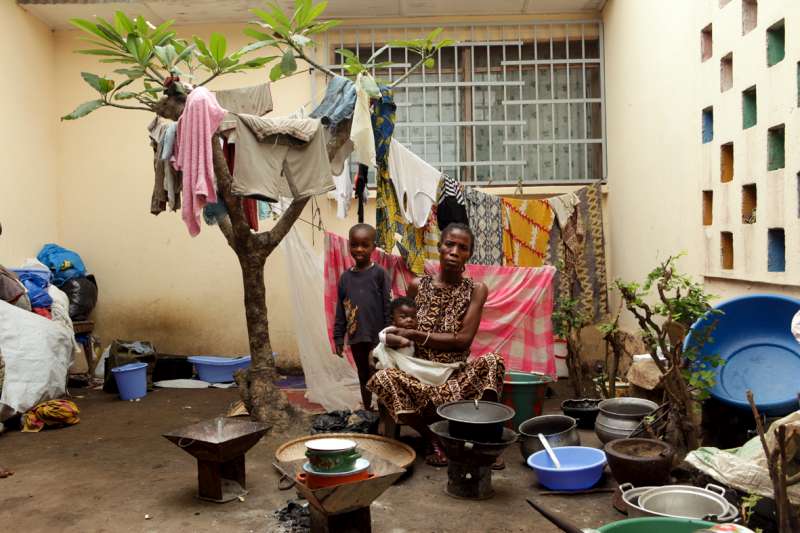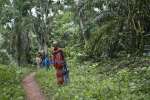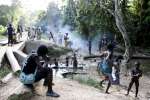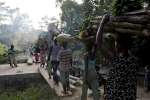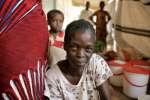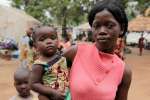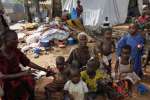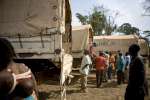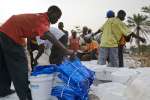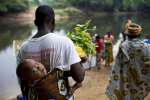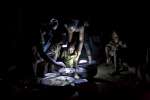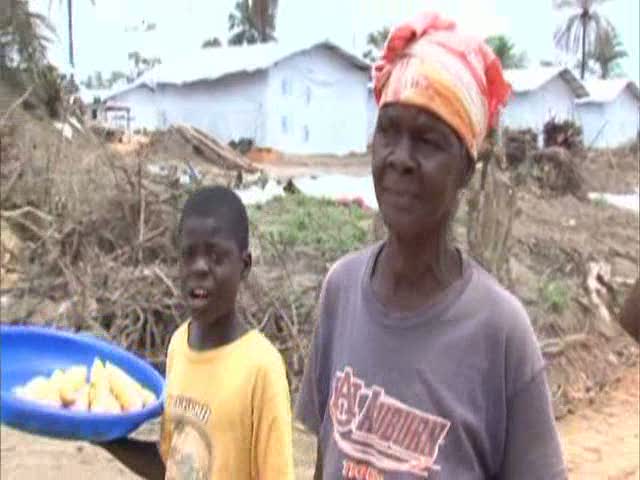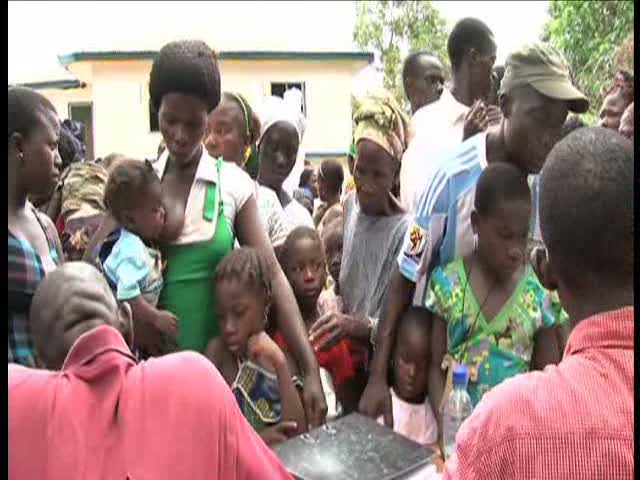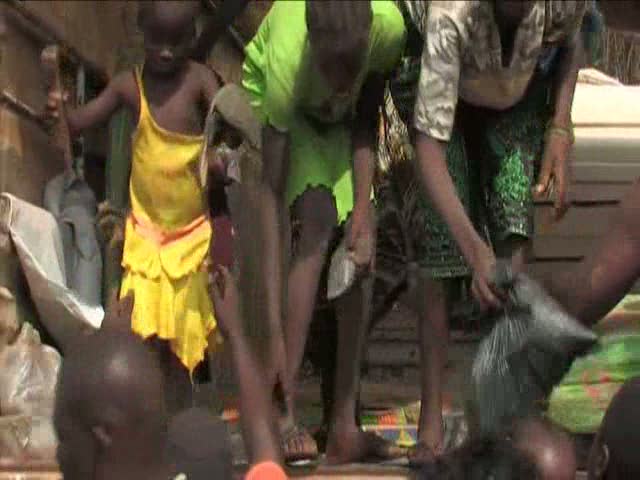- Text size
 |
|  |
|  |
| 
- Français
UNHCR starts work on new camp for internally displaced in Côte d'Ivoire
News Stories, 16 February 2011
DUÉKOUÉ, Côte d'Ivoire, February 16 (UNHCR) – The UN refugee agency is clearing ground for a new camp to shelter displaced people in western Côte d'Ivoire, where UNHCR has registered more than 38,000 people uprooted by political tension in the country.
Humanitarian conditions in the west have deteriorated with the shortage of shelter and UNHCR hopes that the new camp will ease pressure, in particular for the most vulnerable.
The camp is located near Duékoué town and will accommodate up to 6,000 people, relieving crowding at a nearby Catholic mission which has been a main site for the displaced. Heavy rains last week destroyed a number of makeshift shelters in the mission compound and UNHCR has provided tents to some of the affected families.
Many of the displaced have been surviving on the generosity of local families and charities, especially in Duékoué. In Danané, Binhouye and Zouan-Hounien districts more than 8,600 internally displaced people (IDP) are staying with local families.
Some of these hosts are sheltering up to 25 people each and struggling to make ends meet. UNHCR is looking for additional sites to accommodate more IDPs.
Leontine, a mother of eight, has been staying with her cousin Adele in Duékoué since fleeing her village when it was attacked by armed men on December 16. She was separated from her mother and six of her children during their flight.
"I only found my children in another village four days later," she said, adding that her mother had run off in a different direction. "I haven't heard from her since."
Her cousin is hosting 13 people. "It is a lot for me," said Adele, who works as a cook at the Catholic Mission in Duékoué. She gets some food from the mission, but has had to rent another room and this is straining her resources. "I don't want to kick people out of my home, but I must admit that I am running out of money to take care of everyone," she told UNHCR.
In the western Côte d'Ivoire town of Danané, 20-year-old Kadija and her three children are staying in a school with almost 1,000 other IDPs. She fled from the Kokoma area of Duékoué in early January.
"Vehicles had been organized to evacuate people out of Kokoma. We left as shots were being fired everywhere in the city. We did not know where we would be taken, we ended up in Danané," said Kadija, who is pregnant. Her husband stayed behind to keep an eye on their home and possessions.
Most of the displaced in western Côte d'Ivoire fled their homes in mid-December and early January as a result of ethnic tension and violence following the presidential elections of last November. The rival candidates are both claiming victory.
In Duékoué, many people told UNHCR field staff that they could not return to their homes as these had been burned down and possessions looted. Some IDPs in the west have reported physical and sexual violence, as well as arbitrary detention by armed groups acting with impunity.
Fear of retaliation combined with the absence or paralysis of judicial institutions has prevented many people from reporting such abuses. UNHCR remains concerned that the political deadlock is causing widespread fear and, if not resolved, could result in displacement on a massive scale, including an outflow of people to neighbouring countries.
Civilians remain traumatized by the recent troubles, which many see as reminiscent of the civil conflict of 2002. As a result, many families have left their homes in anticipation of possible attack. They fear becoming trapped in case of renewed war and will only consider returning to their homes once the political deadlock is resolved and their security assured.
Meanwhile, continued tension is driving some families to move closer to the border with Liberia while others are crossing the border to seek asylum. So far UNHCR has registered more than 38,200 arrivals in Liberia over the past three months.
By Hélène Caux in Duékoué, Côte d'Ivoire
